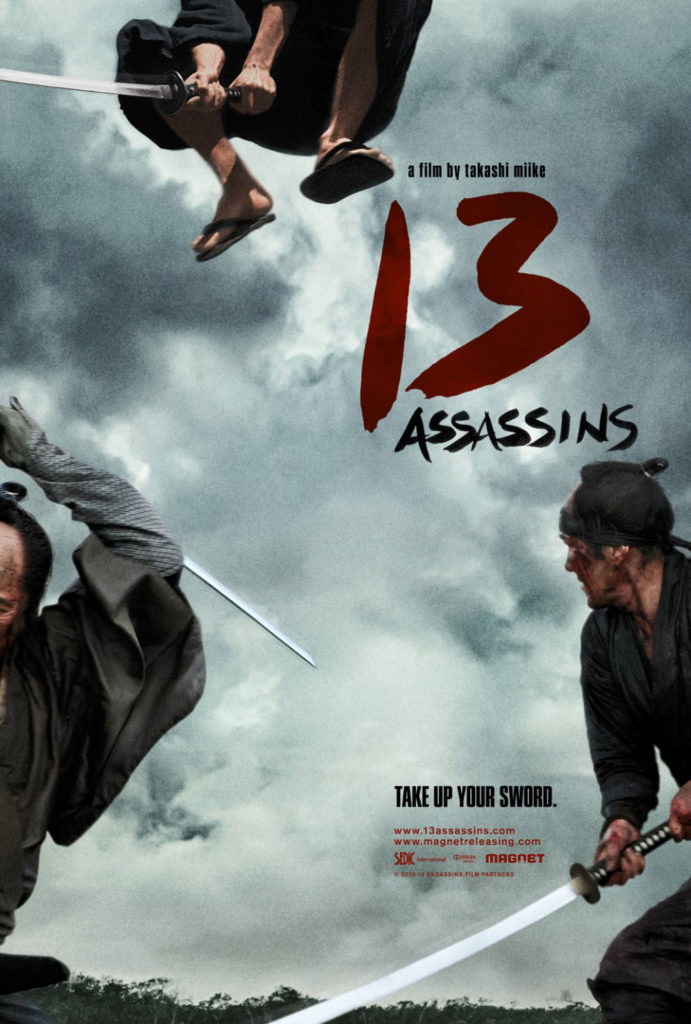Mona Lisa isn’t a typical British gangster film. Many of the hallmarks are there, to be sure. Gritty London scenery, almost impenetrable accents, and Michael Caine and Bob Hoskins. But many of the things a viewer expects from the plot of a British gangster film are absent. There’s no big heist being planned. There’s no grisly murder to revolve the story around. There’s violence at times, but it isn’t the gratuitous kind. It doesn’t rule the film. When it comes, it’s a necessary outcome of the story. Mona Lisa tells a story wrapped within a recognizable genre, but it uses that genre as a tool to tell the tale of a complex personal relationship. Continue reading “The Empty Balcony: Mona Lisa”
Month: April 2011
The Empty Balcony: 13 Assassins
 Three historical periods in Japan are among the most interesting and compelling in the annals of human civilization. The Sengoku period, also known as the Warring States period, comprised the height of feudal conflict from the 15th century to the early 17th century, culminating in the unification of Japan under the Tokugawa Shogunate in 1603. The new era of peace which followed, the Edo period, lasted until the Shogunate collapsed in the wake of internal and external pressures for Japan to end its forced isolation and open its shores to the modern world in the 1860s. What followed was the Meiji period, when the emperor was restored to power, and Japan, through numerous fits and starts, became the empire that was finally defeated by the Allies in World War II.
Three historical periods in Japan are among the most interesting and compelling in the annals of human civilization. The Sengoku period, also known as the Warring States period, comprised the height of feudal conflict from the 15th century to the early 17th century, culminating in the unification of Japan under the Tokugawa Shogunate in 1603. The new era of peace which followed, the Edo period, lasted until the Shogunate collapsed in the wake of internal and external pressures for Japan to end its forced isolation and open its shores to the modern world in the 1860s. What followed was the Meiji period, when the emperor was restored to power, and Japan, through numerous fits and starts, became the empire that was finally defeated by the Allies in World War II.
The legacy of the past, particularly the rigid caste structure that used to exist in Japanese society, is still very much in the public consciousness there, owing to the mythologies surrounding the samurai. A privileged class of warriors, the samurai rose alongside the violent and prolonged wars that typified feudal Japan. One could not seem to exist without the other. Once the wars ended with unification, however, the samurai were without their core purpose, relegated either to roles as bureaucrats, or as restless vagabonds, the laws of the time barring the honored warrior classes from making a living in so-called menial positions as laborers, merchants, or artisans. Yet the samurai were never weaned properly off their warrior ethos. The erosion of the samurai’s self-worth was one of the driving factors behind the collapse of the Shogunate. Continue reading “The Empty Balcony: 13 Assassins”
